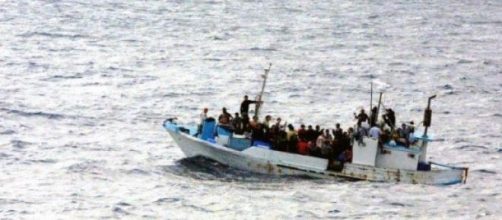The story repeats … only this time it's worse
Another tragedy has hit the Mediterranean: Saturday night, a trawler packed with migrants - 700 to 950 according to different sources- capsized approximately 200 km off the Italian Island of Lampedusa. The migrants, mainly Syrian and sub-Saharan men, women and children fleeing conflict and dictatorship, embarked from Libya in the hope of finding asylum and protection in the EU.
This story has been heard a hundred times and it's happening all too often even recently.
Only this time, the death toll is so huge that the EU just has to react, right?
The bigger picture
3400 deaths in 2014, 900 since the beginning of the year, and 11 000 arrivals on the Italian coasts in the past week. The issue of migrants crossing the Mediterranean to Europe is becoming one of the EU's central foreign policy issues.
An extraordinary meeting will be held today in Luxembourg at 3pm between the EU Ministers of Foreign Affairs and of the Interior, just after the monthly Foreign Affairs Council. Pressure has never been so high: EU Member States and agencies such as Frontex must find a solution to stop the tragedies at sea, and its consequences have to be visible.
What can the EU do to stop the tragedies?
1. Bring Mare Nostrum back
OIM Director William Lacy Swing has called for Operation Mare Nostrum to be set up again, only this time with the full participation of the Member States.
Although it had allowed to save over 170 000 lives between October 2013 and December 2014 off the coasts of Libya, it was replaced by Operation Triton, a border control operation put under Italian command. The central argument used to justify Mare Nostrum's replacement by Triton was the cost and the suction effect that it produced on migrants. As a result, more migrants are dying and emergency funds are being released by the EU Commission. On the short term, bringing back Mare Nostrum under a European mandate would allow for quick results, and if all Member States share the costs, it wouldn't seem that dramatic.
2. Cooperate with origin and transit countries
Tackling the problem at its source is the EU's best shot at stopping migrants from embarking on the deadliest trip of their lives.
This is what the European Commission is working in its Migration Agenda which is to be released in May 2015.
What could this imply, exactly? Cooperation can imply conducting actions such as communication plans to stop migrants from risking their lives and dismantling human trafficking networks in the partner countries, which is the more traditional way to go. However, it would be fitting to act in more constructive and innovative way, for instance, giving people the possibility to claim EU asylum from origin and transit countries - which would imply higher resettlement efforts from all Member States- or fueling more legal migration channels.
Of course, we can also follow Tony Abott's governments' steps and reroute the boats back to third countries once they have been signaled- but that sounds pretty blind sighted in terms of International Law.
In reality, the situation could not be much worse, so let's start from the fact that it can only get better. Come on EU, it's time to innovate!

